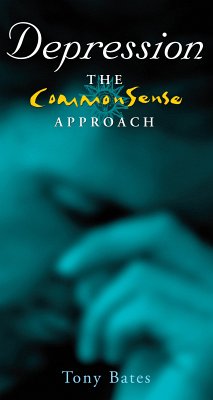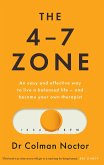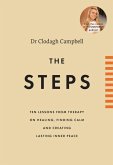In Depression - The CommonSense Approach, clinical psychologist Dr Tony Bates approaches the whole area of depression with sympathy, understanding and knowledge. Depression is far more common than we want to believe. There are many forms of depression and varying degrees of severity, but all are serious and debilitating for sufferers and their families. Dr Bates explains depression, outlines the common and not so common signs, looks briefly at some of the theories that have been put forward to explain it, and provides those affected with the necessary tools to help deal with it. This is a practical and easily accessible book. The prescriptive chapters will provide sufferers with the help they need to deal with self-defeating behaviours and to change patterns of relating to others that keep them vulnerable to depression. The key message is that clear and compassionate thinking helps build self-esteem and gives us back a trust in ourselves that gets lost when we become depressed. Dr Bates also address important issues that are frequently overlooked for partners and families who live with a depressed person. The CommonSense Approach series is a series of self-help guides that provide practical and sound ways to deal with many of life's common complaints. Each book in the series is written for the layperson, and adopts a commonsense approach to the many questions surrounding a particular topic. It explains what the complaint is, how and why it occurs, and what can be done about it. It includes advice on helping ourselves, and information on where to go for further help. It encourages us to take responsibility for our own health, to be sensible and not always to rely on medical intervention for every ill. Other titles in the series include Depression - The CommonSense Approach, Menopause - The CommonSense Approach and Sleep - The CommonSense Approach.
Foreword by Professor Paul Gilbert Introduction - Recognising Depresson
- What Causes Depression?
- A Major Obstacle to Recovery: Hopelessness
- Overcoming Depression: A Recovery Plan
- Getting Started
- It's the Thought that Counts
- Changing your Self-image
- Putting it All Together: Tom's Story
- Living with a Depressed Person
- Beyond Depression: Staying Well and Dealing with Setbacks
Self-help Books: A Guided Review Useful Addresses
Dieser Download kann aus rechtlichen Gründen nur mit Rechnungsadresse in A, B, BG, CY, CZ, D, DK, EW, E, FIN, F, GR, H, IRL, I, LT, L, LR, M, NL, PL, P, R, S, SLO, SK ausgeliefert werden.
Hinweis: Dieser Artikel kann nur an eine deutsche Lieferadresse ausgeliefert werden.









